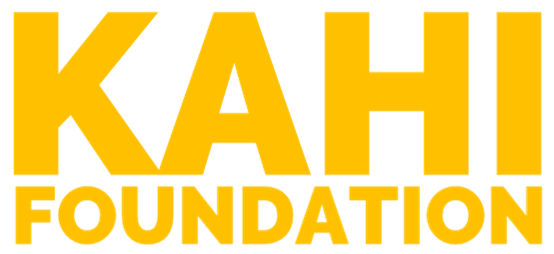KAHI Foundations Education Response to COVID -19 in Bangladesh

The Journey towards Tele Education during COVID-19 Crisis

During the pandemic, KAHI has been ensuring that the students and their families survive this crisis and return to school. Since April 2020, KAHI Foundation has provided food packages & other essentials to all the students’ families and surrounding communities. Our project officers & community officers took regular health updates of our students, their family members & the neighbours over the phone. We also informed them of the appropriate COVID-19 hygiene protocols & precautions.To stop the spread of COVID infection , educational institutions have been shut all over the world, and thus e-learning has become the preferred mode of education. Due to the socio-economic condition of our students, there is no alternative to conducting classes other than through mobile phones.
KAHIs Tel-Ed initiative, which started in June 2020, is one such program that utilises mobile phones (voice call service & short messaging service) to conduct classes. Through this initiative, students are receiving formal quality education from home, and regular participation is ensured to reduce the dropout rate.With this interactive model, our trained teachers conduct classes over phone as well as provide lessons and homeworks via text messages and whatsapp. Every week parents come to the school and submit the homework to teachers. Parents are also provided regular updates of their child’s progress. Regarding the young students, their parents are encouraged to be more involved with this initiative, while the older students are trained to develop their self-learning skills.

Book Distribution
Students received NCTB & JAAGO Foundation’s books during the pandemic. We invited our guardians to receive the books from the school premises.

Relief Distribution
Since the coronavirus outbreak we have been distributing food bags to underprivileged families all over Bangladesh. Till now, we have helped more than 1 Lac families. Thanks to all of you who are helping by putting food on their table.

Ratna’s Days in COVID-19
Ratna is a student of class 2 in KAHI Foundation School Dinajpur branch. She comes from a region where there was no electricity even a few years ago; now, she is attending online digital classes. Ratna’s father, a farmer, shared his thoughts about why he admitted his daughter to this school: “I, along with my wife, who works for a local NGO, both make a living for our family. When the pandemic hit and schools were closed, Ratna became very upset. Because of KAHIs innovative Tel-Ed initiative, Ratna is back to studying, and she can dream about her future again.”
One-to-one sessions under the Tel-Ed initiative have enabled shy students to become more open and interactive. Unlike other children in the country who fell out of the education system due to the pandemic, KAHI school children continue their education through mobile phones. Those who do not have a mobile phone at home are going to the neighbour’s house to attend their class by using their phones. Those who face network issues go out of the house to find areas with better reception; such is their dedication. Therefore, the Tel-Ed project has arrived as a timely initiative for thousands of students and their parents.

Capacity Building Workshop for Teachers to Provide Uninterruptible Education during Pandemic
Our Education Coordinators arranged capacity building workshops for the teachers to understand the concept of Tel-Ed and familiarise them with this initiative. The workshops were focused on the following:
- Objective & execution plan of Tel-Ed
- Effective Phone Communication
- Effective Lesson Delivery over the phone
- How to make a small video/audio lesson

TelEd Monitoring System
During the timeline, June 2020 – Dec 2020, we reached around 91 of our students both online & through telephone calls, conducting 83,605 learning sessions with the guidance of our Education Coordinators and teachers.
- Maintain Conversation Log
- Lesson Plan, Syllabus
- Material Distribution List
- Assignments & Quiz Maintenance
To keep track of both the teachers and students’ class records, we maintain a Conversation Log each week.

Monthly Video File Distribution & Copy checking
Short video materials are shared through the ShareIt app or SD memory cards. One-on-one feedback sessions are also available. Assignments are provided to students, as well assessment questions for the parents.

Online Classes
The rate of online classes is comparatively higher in Rayer- bazar, Banani & Madaripur branches. Students attend their online sessions every week, and their assessments and homework are checked and provided through Whatsapp.

Taking Health/ Other Relevant Updates of Students, Families & Communities
Our administrative team is always on board to take monthly health-related updates of students, their financial condition, and migration-related information from the parents by phone call and door to door visits. Through this, we can track each of our students’ families and monitor their condition.

Video Call Session between Sponsors & Students
Our Child Sponsorship Team organised Google Meet video call sessions between the sponsors and the sponsored students to share their life experiences during COVID-19 and their academic progress.

Communication during COVID-19 Crisis: Bringing the Parents & Community on Board
The administration team is organising meetings in small groups at the school compound and parents’ homes. The issues discussed are the importance of continuing education, hygiene & maintenance, children’s mental health issues and parents’ role to ensure getting all children back to school safely when schools reopen. Parents of thousands of students of KAHI Foundation schools were gathered in small groups, maintaining social distance, to attend our sessions throughout the year.
Major Achievements of Education Program


